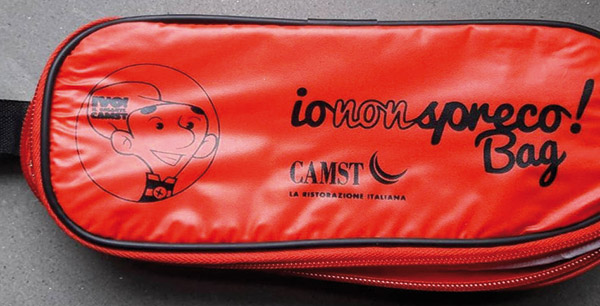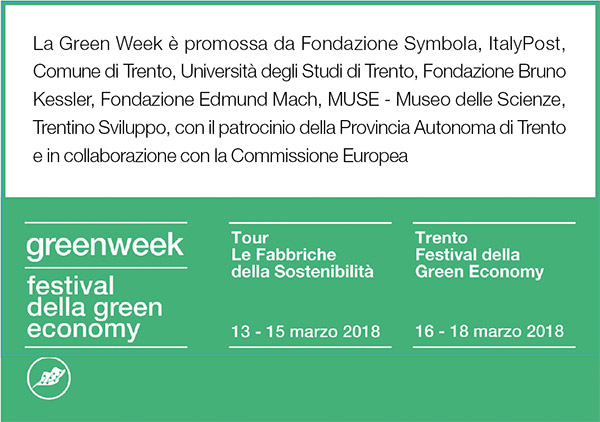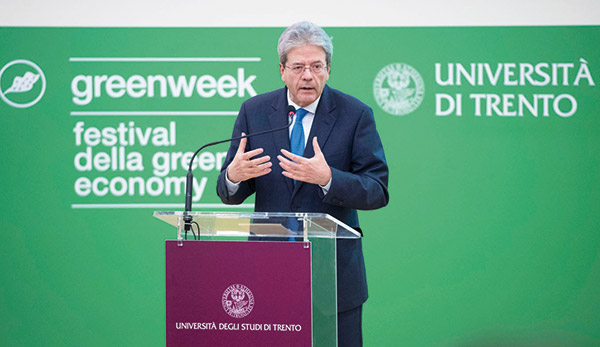Food waste and packaging: the Waste Watcher survey
In the home and in the restaurant industry, can packaging be an ally in waste prevention? What do Italians think? The findings of the latest Waste Watcher* study on the relationship between waste and packaging were previewed at Green Week 2018.

Monitoring behavior, noting good and bad habits, and becoming familiar with packaging and labeling designed to facilitate more efficient use of food can help prevent waste and restore the full value of food products.
These are the themes of Last Minute Market’s awareness raising campaign “Zero Waste”, which has for several seasons coordinated its scheduling with Green Week, the green economy festival in Trento. During that event, on Saturday 17 March, the findings of the new Waste Watcher* survey were previewed, providing insights into Italian families’ relationship with food packaging, how that affects household waste, and which foods are the most wasted in households in northeastern Italy.
The report was presented during a meeting called “The value of food, from groceries to packaging”, which saw the participation of the director of Istituto Italiano Imballaggio Marco Sachet, Gabriella Bartoccelli (head of communications at Camst Group, an Italian cooperative working in mass catering for businesses, schools and hospitals), Silvia Marra (project manager Last Minute Market, a firm which for over 15 years has worked on reducing waste with dozens of active projects across Italy) and Maurizio Pessato, president of Swg (a market research firm).
The role of packaging
The first thing to consider is that household waste accounts for at least 60% of total waste in the sector, in Italy and in Europe. So what is the relationship between waste and packaging?
Marco Sachet explained how packaging can be a valuable ally in this area: «It’s a useful service device. On one hand, it makes it possible to buy a product that reaches your home safe and sound, it offers applications and information that enable us not to waste it, starting with the expiry date and TMC, which should always be checked.
Also important are the closure mechanisms, which make it possible to better preserve uneaten foods, or multipacks, with selective opening, which guarantee that only the desired quantity is opened».
Food waste prevention through packaging also concerns mass catering. This was explained by Gabriella Bartoccelli, head of communications for the Camst Group: «Bags for recovering unfinished meals are an excellent response to food waste. During 2017, we distributed 14,000 of them. Our commitment is both upstream and downstream, with a total recovery in 2016 of 82,000 kg of food. Through our new project “Life EFFIGE”, we will promote the adoption of good practices and good habits in our customers and among all of us as consumers».
*Waste Watcher was founded as a watchdog against household waste, an initiative of Last Minute, SWG (a leading Italian market research company) and the Department of Agrifood Sciences and Technologies at the University of Bologna. Through the study of changing habits and awareness of the issue, it provides tools for understanding the social dynamics and lifestyles that lead to consumer waste.
Every day, between the leftovers in the fridge and those in the pantry, Italians throw away 100 grams of food. Multiplying that by 365 days a year, that’s 36.92 kg of food, at a cost of 250 euro per year per family (according to the Reduce/Diari di Famiglia/Distal Unibo/Zero 2018 survey). That means every household throws away 84.9 kg of food during the course of the year. That’s some 2.2 million t of food a year nationally, at a cost of 8.5 billion euro, or 0.6% of Italy’s GDP.
Green Week is promoted by Fondazione Symbola, ItalyPost, the municipal government of Trento, the University of Trento, Fondazione Bruno Kessler, Fondazione Edmund Mach, MUSE - Museum of Sciences, and Trentino Sviluppo, with the support of the autonomous province of Trento and in partnership with the European Commission.

La Green Week 2018

Circular, economy, reuse, ending waste, saving energy and new forms of energy, green chemicals, mobility, environmental and scenic conservation, sustainable architecture and green construction, corporate social and environmental responsibility.
These are the themes tackled at Green Week, an event spanning the Italian peninsula dedicated to green economy, now in its seventh edition. The event was divided into two parts: from 13 March to the 15th, a tour of Friuli-Venezia-Giulia, Veneto and Trentino and the region’s “sustainability factories”, a select group of businesses with an outstanding commitment to sustainability, which opened their doors so that visitors could see personally the products and processes they have adopted.
From Friday the 16th to Sunday the 18th of March, the event continued in Trento with the Green Economy Festival, a long weekend animated by debates and discussions with exceptional participants, including entrepreneurs, experts, operators and representatives from institutions.
The opening day saw speeches presented by Ermete Realacci, president of the Symbola foundation (this year’s sponsor), Enel CEO Francesco Starace, Ima chairman Alberto Vacchi and Prime Minister Paolo Gentiloni, in an event called “The green economy and national recovery.”
Friday also saw the presentation of the Radical Green Awards 2018, prizes in recognition of the best businesses that have contributed, in one way or another, to promoting and practicing a culture of sustainability.
This year, the winners included Lorenzo Delladio, CEO La Sportiva, Filippo Berto, CEO Berto Salotti, Marco Mantellassi, CEO Manteco, Alessandro Invernizzi, president Lurisia, and Susanna Bellandi, global creative, communications & CSR director of Sofidel. A special mention went to Paolo Verri, director of Matera European Capital of Culture 2019.

















